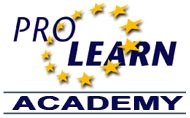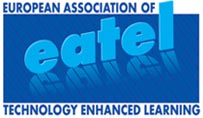EC-TEL 2009
| What | Conference |
|---|---|
| When |
Sep 29, 2009 04:05 PM
to Oct 02, 2009 04:05 PM |
| Add event to calendar |
|
Fourth European Conference on Technology Enhanced Learning "Learning in the Synergy of Multiple Disciplines"
Currently, the face of learning is changing substantially. Formal learning is surrounded by informal learning opportunities, classroom learning is complemented by workplace learning, and even the frontiers between teaching and learning are disappearing as people are learning collaboratively and engaging in knowledge communities. These developments are driven by technological advancements: large scale knowledge repositories provide learners with content and support them in an individualized and adaptive way; semantic technologies provide contextualized and task-specific information; the Web 2.0 enables people to actively take part in knowledge communication and knowledge construction. These new tools and technical means need psychological and pedagogical models of learning which take into account the vast diversity of situations where learning takes place, as well as the specific needs of individuals, tutors and organisations.
ECTEL 2009 aims to bring together new technological developments and learning models. The conference will explore how the synergy of multiple disciplines, ranging from Computer Science, Education, Psychology, Cognitive Science, and Social Science, can provide new, more effective and more sustainable, technology-enhanced learning solutions. The conference welcomes researchers from European and Non-European countries and industries to present recent advancements from technologies, applications, and learning models in all areas of technology enhanced learning.
TOPICS OF INTEREST
Novel technologies for learning:
- Large scale sharing and interoperability
- Network infrastructures (peer to peer, ad-hoc networks, GRID)
- Semantic web and web 2.0
- Web services architectures
- Sensors and sensor networks
- Mobile technologies
- Roomware and ubiquitous computing
- Data mining and social networks
- Intelligent games
- User-adaptive systems and personalisation
- Natural language processing
Pedagogical issues for TEL
- Learning communities & communities of practise
- Problem- and project-based learning; inquiry based learning
- Collaborative knowledge building
- Scripting
- Game-based learning
- Instructional design
- Evaluation methods for TEL
- Learner motivation and engagement
Individual, social & organisational learning processes
- Cognitive mechanisms in knowledge construction
- Social processes
- Knowledge management and organisational learning
- Sustainability & TEL business models
Learning contexts and domains
- Formal education
- Small, medium and large companies
- Distance learning
- Vocational training
- Informal learning
- Workplace learning
- Learning domains, e.g. science, language, music, geography, history
- From kindergarten to elderly people
- TEL in developing countries
- TEL for disabled persons
More information about this event…



